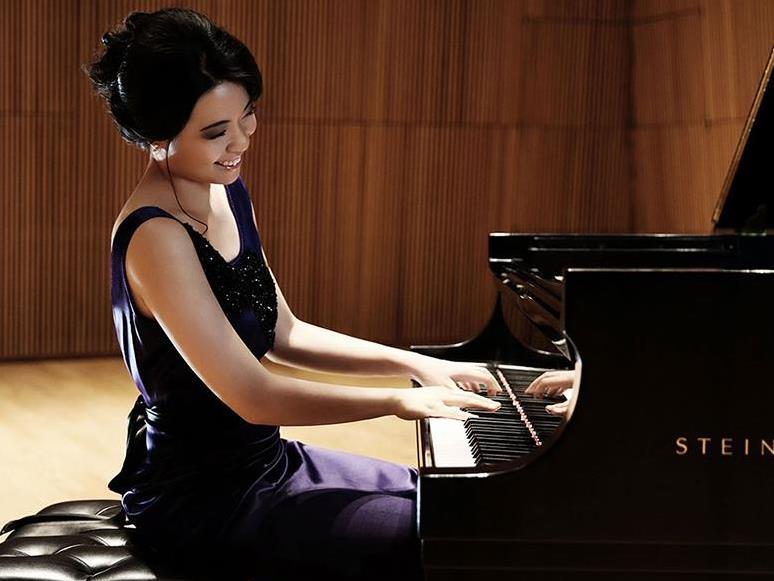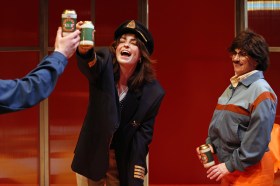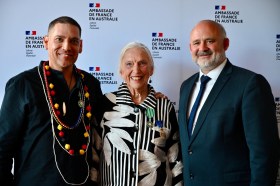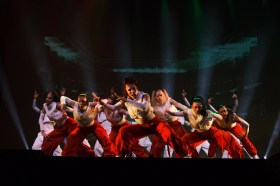Image Joyce Yang on the piano; Photograph courtesy of Melbourne Symphony Orchestra.
A cosy Hamer Hall on a damp and chilly evening set the scene for a well-programmed line-up of Russian composers telling tales of woe and joy, light and dark and of course love and tragedy. In true local style the hero of the night – a spunky Venezuelan in a morning suit, and the heroine – a gorgeous Korean in fuchsia, played against a backdrop of well-tailored black-clad Melburnians.
The opening chapter, Mussorgky’s Night on Bald Mountain is a dark folktale about witches and spirits written for the summer solstice St John’s Eve – a version of our Halloween. Reminiscent of a Hitchcock film score, it is the composer’s only major orchestral piece and was not performed until after his death. The orchestra got the mood just right from the ominous and tense opening through the dancing melodies to the enigmatic ending. The hauntingly beautiful flute solo cut straight to the emotional core and when the bells tolled you could almost feel the fog seeping up through the seats in the auditorium.
Between pieces the Steinway was rolled into its dominant place at the centre of stage, bringing with it an air of anticipation. When Joyce Yang appeared it was as a joyous splash of colour against the orchestra’s uniform black.
Rachmaninov’s Piano Concerto No. 2, the middle tale of our evening, was the first piece the composer wrote after emerging from a particularly dark period. It is an exploration of those difficult times along with feelings of hope for times to come. This piece sees the piano rise and fall among the orchestra like the swell of a wave amidst the ocean. Yang rode this wave with style, her fingers like feathers, her body as expressive as her playing. From the beginning of the Moderato to her special encore of Ginastera’s Dance of a Beautiful Maiden Yang played with tenderness and eloquence.
Our final chapter and the title piece of the evening were excerpts from Prokofiev’s Romeo and Juliet Suites. Obviously this is the iconic tale of tragic young lovers, but the story of how the composition ever came to be is equally as dramatic. Prokofiev spent years trying to collaborate on the vision that he had for this work, resulting in these suites being arranged separately from the ballet itself. They are therefore full of conflict and passion, contrasting from grand to quiet, sweet to explosive, fun and flippant to serious. The MSO brought all of this to life in their usual brilliant way.
It is these performances that remind you why it is so important to experience this music live. The stories that are being told are not just in the musical pieces themselves, they’re the composer’s stories, each of the performer’s stories, and the orchestra as a whole. On Friday night the Melbourne Symphony Orchestra brought us together with a South American, a Korean and some Russians and made us into one big tale. Now there’s a story worth telling.
Rating: 4 stars out of 5
Romeo and Juliet
Modest Mussorgsky: Night on Bald Mountain
Sergei Rachmaninov: Piano Concerto No.2 in C minor, Op.18
Sergei Prokofiev: Romeo and Juliet, excerpts from Suites 1,2 and 3
Diego Matheuz: conductor
Joyce Yang: piano
Hamer Hall
Melbourne Arts Centre
3 June 2016






